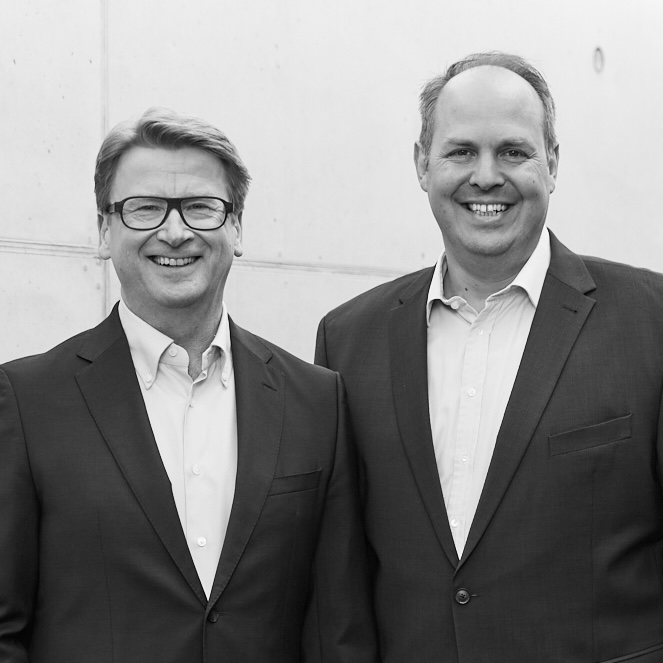Updating mental operating systems
Review your behaviour patterns and use your emotions to actively shape relationships and develop into the person you would most like to work with yourself.
How we can support you
Best Practice
Why aergon? 5 good reasons
Passion
We are driven by the desire to make things as good as possible for everyone. Always a bit more. And we love what we do so much that we would carry on doing it even if we no longer needed to work!
Curiosity
We always have an open ear and are keen to learn. Whether we are giving a training course, are travelling, are at a tech, marketing or innovation conference, or are on the production floor at one of our client’s sites.
Adaptability
We always strive to understand, regardless of whether we are in a board meeting or on the shop floor, talking to Gen-X or Gen-Z, communicating with emotionally or more factually oriented people, in an industrial setting or visiting a design studio.
Simplification
We use mental models to strip psychological and philosophical topics down to the essentials, making them understandable, interesting and easy to apply.
Connection
We have been working with managers and their teams since the late 1980s. We have therefore seen and experienced a vast array of different situations, and are able to combine our experience and sensitive approach with new technology and the latest research.
Best Practice
10 tips from experience for a successful culture transformation
1. A vision is the starting point
If you have an image of the future with emotional traction, you can align your strategy with it and give the entire team a clear raison raison d'être. They will then be committed and able to mobilise energy even in challenging times. In this way, the company can retain valuable employees and become even more attractive to potential applicants.
2. Change always starts at the very top
Those who demand change from their employees without changing themselves will fail. It is not only about being a role model, but also about shaping paths through behaviour, clear rules, processes and communication in such a way that employees can follow the paths without having to constantly think about what is expected.
3. A transaction is not a transformation
When trying to solve a problem, the first step for managers is to actually do something: adopt measures, start projects, introduce interventions – always looking outwards. And if these don’t yield the desired results straightaway, the manager will either carry on doing more of the same or try a different approach. This is often the quickest road to success. But transformation involves doing things differently, and for this you need to have a clear view of yourself and a steady hand to select appropriate transactions.
4. Grass does not grow faster if you pull on it
Managers prefer to achieve good results quickly, and this is what makes transactions so popular, even if they are often not very sustainable. It usually takes time for a corporate culture to change noticeably: patience, a few setbacks, confidence and the willingness to adjust the strategy every now and then are prerequisites.
5. People come and go
Following cultural transformation, new employees will need to come on board. But sometimes a desired candidate will decline a job offer or only stay with the company for a short time, and long-standing and very valuable employees may leave. But even if the critics of the new culture feel affirmed and it doesn't feel like it at the time, this is a good sign!
6. Communication means talking
In order to not only support change, but to help shape it as well, it is important for employees to understand why changes are necessary and where the company is heading. And this requires more than a few intranet articles, emails, PowerPoint presentations and all handsl meetings. A considerable amount of discussion is needed here, also in an informal setting, between line managers and their teams. Over and over again.
7. Appearances can be deceptive
For any company, it is important that its external presence, i.e. the claims made on its website, in its advertising, on social media, in presentations, in brochures, at all hands meetings and in press releases, are more attractive than the reality – to a degree. But if the image portrayed is too unauthentic, this will lead to cynicism and sooner or later the corporate culture and thus productivity will start to erode.
8. Turn players into participants
Today, almost every company claims to promote empowerment and entrepreneurial employees, and yet many decisions are still made alone at the top floor instead of developing solutions together with the affected teams and then making a decision. This would be quicker and would actually turn buzzwords into a living culture.
9. Celebrate success
In the face of so much ambition and lofty aspiration, many achievements are no longer recognised as such or are overlooked in the stress of everyday life. However, nothing brings teams together more than shared success. We are not talking about excessive praise or a lot of fuss about nothing, but simply a little bit of mutual appreciation, pride and joy can really boost team spirit.
10. Transformation is no walk in the park
Personal transformation can be arduous and painful: discovering weaknesses in yourself instead of only in others, receiving critical feedback instead of only giving it. And just when you think you have reached your goal, new obstacles and setbacks always crop up. Resisting the temptation to take a shortcut via the transaction or switching to the factual level and operational issues is exhausting, but it is well worth the effort.



















